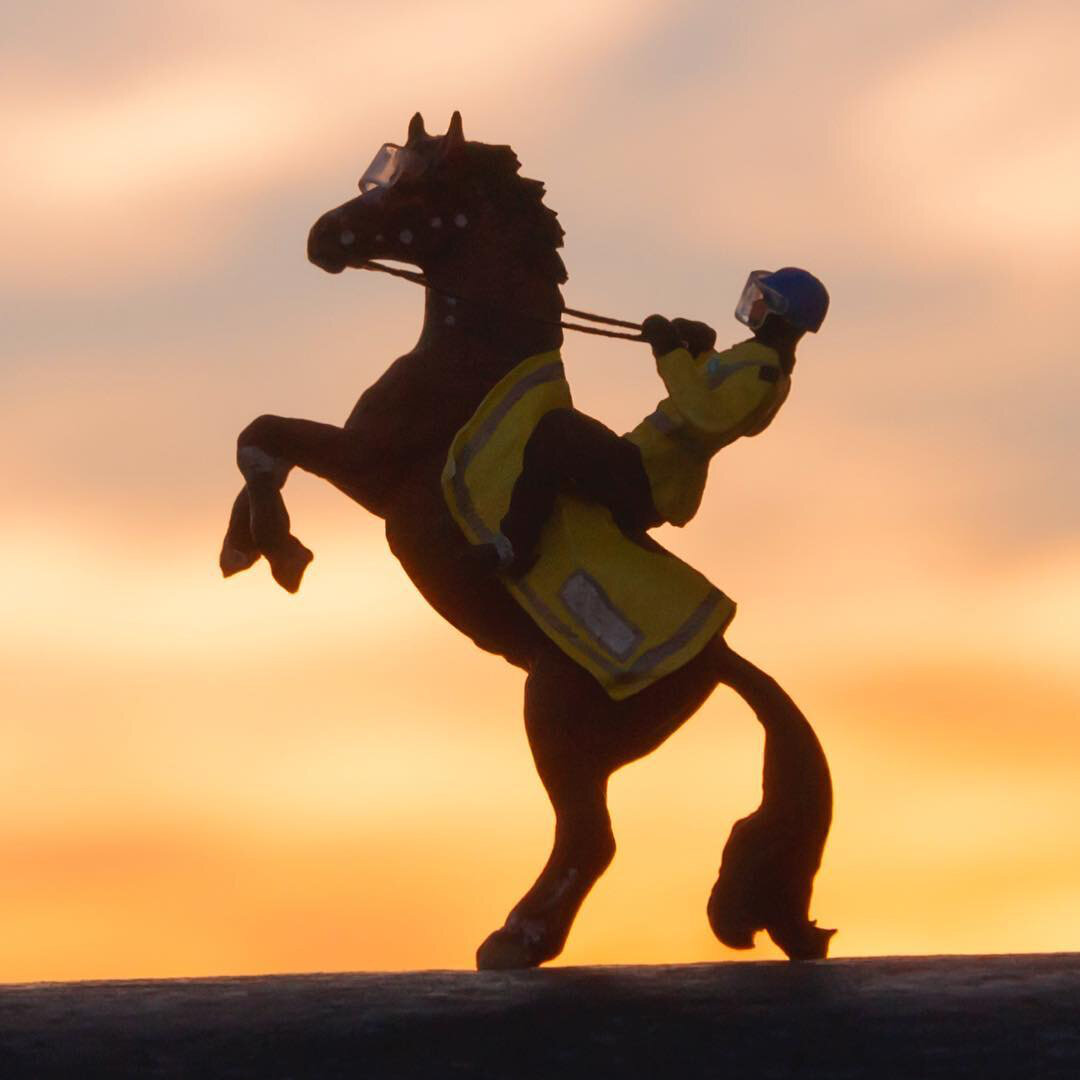Getting Better at Noticing Directly
Photo by Chase Clark on Unsplash
by Daron Larson
Noticing ordinary perceptions directly is a natural capacity that responds to exercise.
It gets better with practice over time.
But don't wait for the empowering impact on your self-awareness to appear. Aim smaller. Focus on subtle improvements in your technique.
When you begin a walking or running program, there are several details you can track as subtle signs of improvement. Your step count. The length of your stride. Your pace. The amount of time it takes your heart to return to its resting rate.
Keeping track of your weekly mileage gives you tangible evidence that your body’s capacity for running is improving, even though you still have to trick yourself into your shorts and out of the house to exercise.
But how will you know when you’re getting better at noticing perceptions?
Noticing becomes more effortless and spontaneous
"BORN FREE" by Slinkachu, Wandsworth, London
At first, noticing ordinary perceptions directly involves a lot thinking and second-guessing.
The difficulty of direct awareness is a factor of its simplicity. It’s simple to observe sensory perceptions. It’s complicated to try to describe them.
Exercising your attention can seem awkward and even pointless at first. We’re used to adding a layer of meaning to every observation.
As your technique gets better, it will seem like you're forgetting to do something. When you expect this and accept it and practice, your attempts to notice will become more effortless.
Getting better at noticing directly means your efforts feel more effortless.
When one repetition of noticing feels too simple to accomplish anything important, it means your technique is improving.
When you get more familiar with this natural, effortless kind of noticing, you will find yourself noticing ordinary perceptions spontaneously.
Until then, try to remember how confusing and vulnerable it felt to learn every skill you have ever learned in your entire life. Typing. Driving. Multiplication.
Let learning feel clumsy. Overthink. Second-guess.
Be willing to trip over yourself repeatedly. Keep getting back up.
Let it be cumbersome for as long as it takes to become spontaneous.
Options for noticing increase
"BORN FREE" by Slinkachu, Wandsworth, London
When we begin noticing differently on purpose, we think that almost nothing counts.
Noticing the breath counts. Relaxation counts. A quiet mind counts.
Nothing else counts.
This just isn’t true.
Everything counts. There are so many options that there isn’t enough time to notice them all.
What counts? Any sensation or perception you can observe directly.
Anything you can see, hear, or feel counts. Anything.
Even hearing your thoughts or seeing them roll by counts.
Processing information takes time. Making decisions takes time. Deciding which option is better takes time. Telling a story takes time.
Noticing directly takes almost no time.
Anything that can be observed directly for a few seconds counts.
Getting better at noticing directly means gradually realizing that you’re completely surrounded by options.
I dare you to try to find something directly observable through your senses that doesn't count.
Noticing becomes more frequent
"BORN FREE" by Slinkachu, Wandsworth, London
Remembering to notice ordinary perceptions begins with forgetting.
You will remember that you forgot to notice. You will forget that you remembered to notice. You will remember to notice several times a day for several days in a row, and then you will completely forget for a day or even a week.
Interpret remembering that you forgot to notice as evidence that you're starting to remember.
The next time you remember that you forgot to notice, stop and notice something directly — right at that very moment. Notice what it feels like to forget. Notice what it feels like to remember. It’s that easy to get back in this slippery game.
Before you know it, you will remember more frequently. The rich variety of sensory details will start to provide more reminders. The satisfaction of direct awareness unmuddied by second guessing will.
Getting better at noticing directly means forgetting to notice perceptions until remembering becomes habitual.
This will all happen sooner than you imagine. But only if you practice.
Better technique leads to better results
When in doubt, focus on your technique.
Getting better means your technique is getting better.
Getting better means realizing how frequently you prioritize your imagination over what's happening around you. Notice something around you.
Getting better means being able to toggle off autopilot with less effort and more agility. Toggle off autopilot as often as you can.
Getting better means remembering to stop waiting for yourself or the world to become perfect. Do you feel at home right now? What are you waiting for? What needs to change? Can you forego that change for a handful of seconds or minutes?
Try.
Try again.
Keep trying.
You will still be able to grow and help others. Your efforts will become more effective.
Stop trying to acquire contentment.
Getting better means setting the stage for contentment to seep into your life gradually and catch you by surprise.




